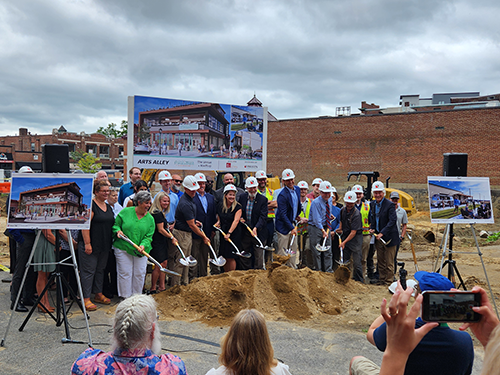Under the leadership of former mayor Jim Bouley, the Chamber’s Local Government Affairs committee has been actively advocating on behalf of the business community with elected officials and City of Concord staff. Recently, a subcommittee was established to take a look at Concord’s zoning ordinance, which is in urgent need of updates. At some point in the future, the city will undergo a thorough review and revision of the city’s master plan, which will set the table for a comprehensive review of the zoning ordinance. That process may take years to complete. In the meantime, unnecessary restrictions are hampering Concord’s ability to grow its tax base and increase Concord’s housing stock. The current outdated zoning ordinance requires applicants to routinely seek variances. These are typically granted, but this process causes project delays and unnecessary cost increases. Some areas of the zoning ordinance that are being reviewed by the subcommittee include:
- Parking requirements – Current zoning requirements can result in “empty asphalt”—frequently unused parking spots that take up valuable space. This is particularly problematic in larger developments.
- Accessory Dwelling Units (ADU’S) – These are living units that are added to an existing home. An “in-law apartment” is an example of this. These units are currently required to be attached to an existing house, even if the ADU complies with the ordinance in all other aspects.
- Setback requirements – These specifications outline how close a building can be to the street or adjoining property lines. The current requirements are restrictive, and could offer more flexibility to the developer.
- Commercial signage – Existing limitations on commercial signage are overly restrictive.
- Home occupation guidelines – These guidelines define how a residence may be used. For example, current rules are overly restrictive for residents who wish to run a small business out of their home. These guidelines do not make a meaningful impact on residential neighborhoods, but create unnecessary barriers for residents.
These are just a few examples of areas where a short-term fix may make the development process a bit less burdensome, as the City approaches their next master plan.
The Local Government Affairs committee meets monthly on the second Tuesday of the month at 8:30 am. Chamber members interested in getting involved are invited to reach out to Tim Sink, Chamber President, at tsink@concordnhchamber.com.

